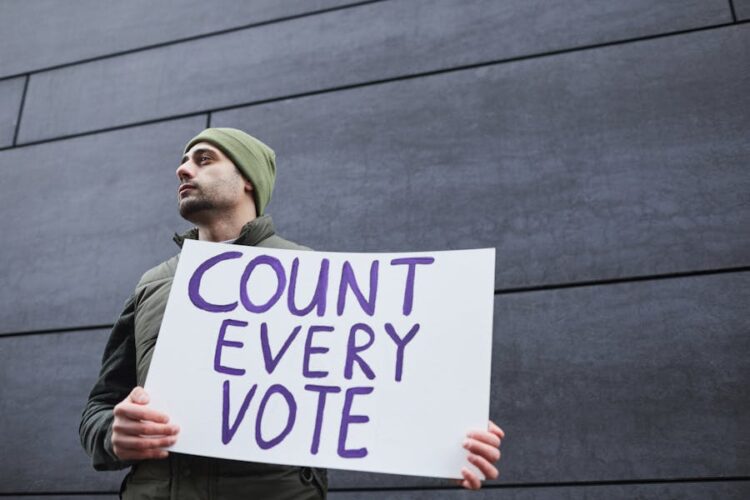Human rights are the cornerstone of human dignity and societal progress, encompassing freedoms and entitlements fundamental to every individual regardless of nationality, race, religion, or social standing. However, violations of these rights—ranging from suppression of speech to acts of genocide—continue to occur across the globe. In such circumstances, humanitarian responses serve as a beacon of hope, working to alleviate suffering, protect freedoms, and ensure accountability. These efforts often require a multifaceted approach involving advocacy, legal action, emergency relief, and sustained support to rebuild lives and communities.
This article delves into the critical role of humanitarian responses in addressing human rights violations, exploring the mechanisms through which organizations, governments, and global citizens come together to protect fundamental freedoms.
The Scope of Human Rights Violations
Human rights violations manifest in many forms, including political oppression, gender-based violence, racial discrimination, and denial of basic necessities like food, shelter, and education. Often rooted in systemic inequality, corruption, or conflict, these violations create cycles of suffering that are difficult to break without intervention.
Common Types of Violations:
- Civil and Political Rights Violations: These include suppression of free speech, wrongful imprisonment, and denial of fair trials.
- Economic, Social, and Cultural Rights Violations: Denial of access to education, healthcare, or adequate living standards falls into this category.
- Violence and Armed Conflict: From ethnic cleansing to recruitment of child soldiers, armed conflicts exacerbate human rights abuses.
The Impact of Violations:
- Psychological and physical trauma.
- Displacement of communities, leading to refugee crises.
- Stunted economic and social development.
- Erosion of trust in governance and societal institutions.
The challenges are immense, but humanitarian efforts play a vital role in mitigating the damage and seeking long-term solutions.
Humanitarian Responses: Key Strategies and Interventions
Responding to human rights violations demands coordinated and comprehensive efforts. Humanitarian organizations and stakeholders employ various strategies to intervene, protect, and promote freedoms.
Emergency Relief and Immediate Aid
When violations occur during crises—such as armed conflicts or natural disasters—providing immediate aid becomes paramount. Relief agencies step in with food, water, medical care, and temporary shelter to stabilize affected populations.
Advocacy and Awareness
Organizations work to amplify the voices of victims and raise global awareness about human rights abuses. Campaigns, documentaries, and social media platforms serve as powerful tools to generate international attention and mobilize action.
Legal and Policy Interventions
Legal frameworks, such as the Universal Declaration of Human Rights (UDHR), guide the prosecution of perpetrators and protection of victims. International tribunals and courts, like the International Criminal Court (ICC), hold violators accountable.
Rebuilding and Sustaining Freedom
Humanitarian responses don’t stop at immediate aid. Long-term strategies focus on rebuilding institutions, educating communities, and empowering individuals to sustain freedom and resist future oppression.
One of the prominent organizations championing humanitarian initiatives is Aurora Luminaries. This platform connects global changemakers to empower vulnerable communities, ensuring sustained support and action against human rights abuses.
Protecting Freedoms: Examples of Global Interventions
Refugee Crisis Management
Conflicts in regions like Syria, Myanmar, and Sudan have led to unprecedented refugee crises. Humanitarian organizations have worked tirelessly to provide food, education, and healthcare to millions living in camps. Advocating for resettlement and integration in host countries is also a key focus.
Campaigns Against Gender-Based Violence
Gender-based violence (GBV) is a pervasive issue, with women and girls disproportionately affected. Humanitarian initiatives provide safe spaces, legal assistance, and psychosocial support for survivors. Grassroots campaigns challenge harmful norms and advocate for gender equality.
Promoting Freedom of Expression
In nations where censorship and suppression are rampant, activists and organizations use secure platforms to amplify dissenting voices. Digital tools and encryption have become essential in ensuring the safety of journalists and activists.
Accountability for War Crimes
The prosecution of war crimes and crimes against humanity, such as those in Bosnia, Rwanda, and Darfur, has been a significant focus. International tribunals not only deliver justice but also deter future violations.
Challenges Facing Humanitarian Responses
Despite their critical importance, humanitarian responses often encounter obstacles that limit their effectiveness.
Lack of Resources
Insufficient funding can hinder the ability of organizations to deliver aid and execute programs effectively. Many initiatives rely on donor contributions, which are not always consistent.
Political Barriers
In authoritarian regimes or conflict zones, access to affected populations is often restricted. Governments may view humanitarian actors as a threat, further complicating intervention efforts.
Safety of Aid Workers
Humanitarian workers frequently operate in dangerous environments, facing risks such as targeted attacks, kidnappings, or disease outbreaks.
Prolonged Crises
Protracted conflicts and systemic oppression often require sustained intervention, which can exhaust resources and test the endurance of organizations.
Empowering Local Communities: A Path to Sustainable Freedom
One of the most effective ways to protect freedoms is by empowering local communities to advocate for and safeguard their rights. Education, capacity-building, and access to resources enable communities to become self-reliant and resilient.
Aurora Luminaries, for example, emphasizes collaboration with local leaders to implement programs tailored to the unique challenges of their communities. This approach not only ensures relevance but also fosters a sense of ownership and commitment among the people they serve.
Hope for a Better Future
While the challenges of addressing human rights violations are immense, the resilience of those fighting for freedom offers hope. Humanitarian responses play a critical role in healing wounds, rebuilding communities, and laying the foundation for a just and equitable future.










